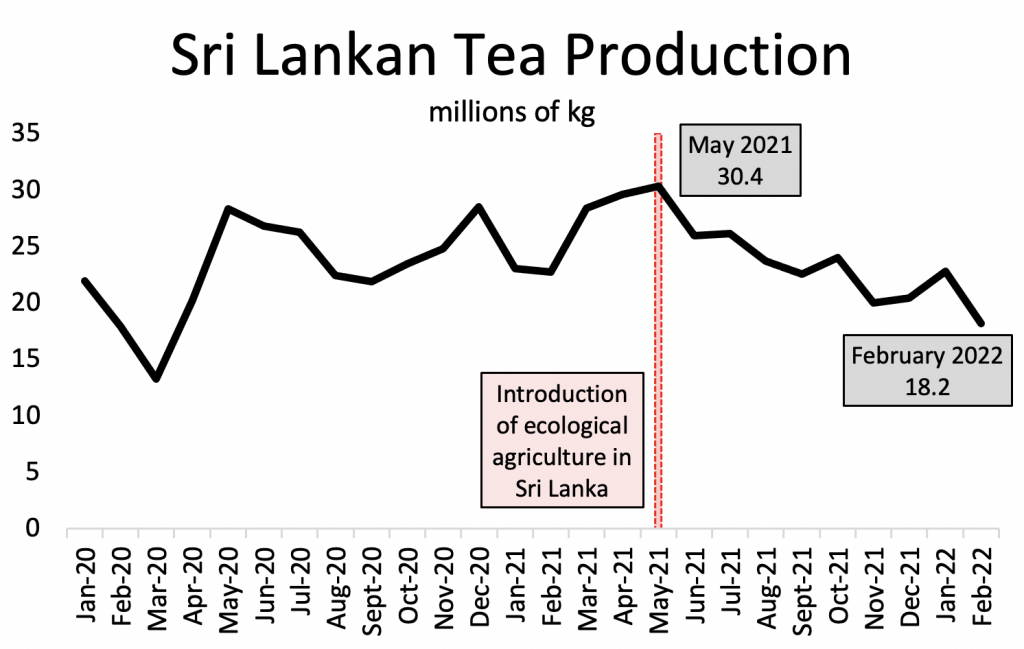Neoliberal Econ Failure II: Destroying a Nation
Hearing “sustainable development” gets our senses heightened. Yes we want that. Yes each of us wants pure air, cleaner water, less heat and better food. The idea of getting all of this, while also balancing sustainbility appeals to all of us. It is noble. We want to do our bit. So, we created a scale to say, me good you bad, try and be better and end up doing more bad. The scale I am talking about here is ESG
ESG stand for
- Environment: The amount of energy an entity uses and the waste it discharges, and its effects on living beings.
- Society: Relationship an entity has with its people and their institutions.
- Governance: The procedures, controls etc. an entity has in place to comply with law of the land and make good stakeholder management.
An entity that scores good on all three are get the highest scores.
Guess what the ESG rating of Sri Lanka is: 98 on a scale of 100.
That’s right. Its higher than Sweden [96] or the US [50]. It has achieved a gold medal in the eyes of the IMF and ESG fund sepcialists. The country and its people however, have no gold to take home and are in peril.
It is true, that the crisi in Sri Lanka is a making of bunch of complex factors,
- Unservicable levels of debt from China,
- The bombings by Islamic extremists and Covid 19 leading to loss in tourist revenue,
- High international commodity prices
but the major nail in the coffin for the island nation state was the implementation of a complete chemical fertiliser ban in the country. The major reason? Western elites and the Davos cool boiz in private jets (the ones I mentioned in the last article as well) peddle the idea of “Organic Agriculture and ESG” which seems to a big criteria for them to provide funds to nations.

One of the major export items of the country is tea, and the picture is pretty grim there as well.

Tea production went down by a mind boggling 40% in a matter of 10 months which affected the exports and hence the balance of payments for the country.
Blanket bans like these are good virtue signals to the world but seldom generate desired outputs. A similar blanket ban is being proposed in Netherlands and farmers are up in arms about it.
The issue with ESG and SDG goals of the west is that they are using developing or udner developed economies to pursue these goals. It is really stupid of the EU or the US to lobby for blanket ban over items/means of production in countries where the economies are heavily dependent on these items. ESG scores can get very high with these high headed and handed bans, but the suffering of people, who are now massively dependent on the items for survival is much more immense and stands to pale the perfect score report card doled out for these steps.
The major issue with the scales is also that the definition of clean is done by a select few who create very self serving definitions. Recently EU declared natural gas and nuclear as “clean” fuels after years of shutting down sustainable nuclear energy plants.
This kind of short sighted policy making and integrating them to scales which ultimately affect an entity’s capcity to raise money, do trade is quite saddening. Its time for these organisations to look at the economies as a whole and mend their rules according to regions, agree on meaningful timelines and spend time on the ground with the last leg of the society that these rule changes create before peddling for such high handed clauses and later reverting back on them after big losses to the whole society have already happened.
On another note:
- Coca cola, Pepsi rank very high on ESG ratings. Core business: core businesses involve the manufacturing and marketing of addictive, products that are a major cause of diabetes, obesity, and early mortality
- Facebook: Core business model is algorithms for selling addictive content that have made dangerous hate speech and misinformation ubiquitous across the internet, and the companies’ products have been tied to an increase in mental health issues in young people.
Food for thought: If core business of companies is bad, does installing solar panels, and “good-behaviour” with governments make them cover up for it?
ESG needs to be more holistic in evaluation. Inspecting impact of measures on the immediate economies and the impact on people in the society. Scales that do not take into account these factors are inaacurate and a recipe for disaster.

PS: The featured image of the post is generated from DALL.E 2
SST View All →
A graduate from BITS Pilani, class of 2019, I am currently working as a Product Manager at Flipkart. I like to write about things that get stuck in my head. By writing I make sure everyone knows what absurd thoughts I have :P Thanks for visiting.
Insightful!!
LikeLiked by 1 person